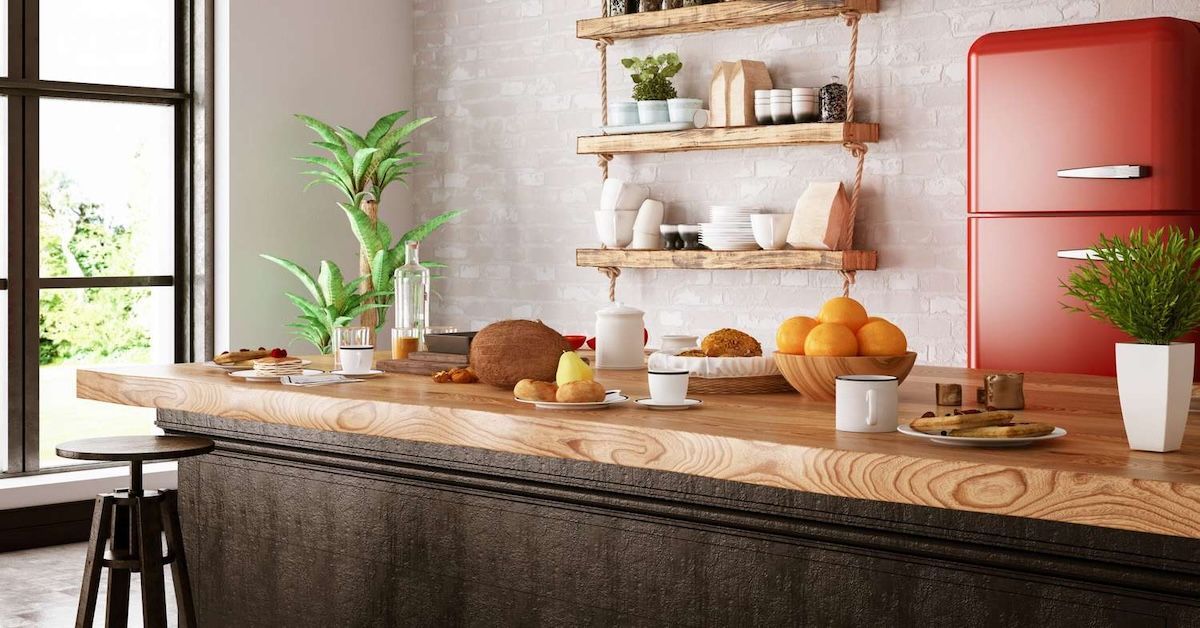How Do I Choose the Right Countertop Material for My Kitchen?
- By Ashraful Islam
- •
- 09 Jan, 2025
Countertops are one of the most important features in a kitchen. They define the space’s overall style, provide a surface for food prep, and endure the wear and tear of daily life. With so many options available, choosing the right countertop material can feel overwhelming. From assessing your needs to considering aesthetics and budget, here’s a complete guide to help you make the perfect choice.

Assess Your Lifestyle and Usage
Your kitchen habits play a big role in determining the best countertop material. Are you an avid cook who uses the kitchen daily, or do you stick to light meal prep? For heavy cooking, durable materials like granite or quartz are ideal as they resist heat and scratches. If your kitchen usage is minimal, more delicate materials like marble can work beautifully. Understanding how much your countertop will be used helps narrow down materials that can handle the wear and tear of your lifestyle.
Consider Your Budget
Countertops come in a wide price range, so it’s essential to set a budget upfront. Laminate is a great choice for those on a tight budget, offering versatility and affordability. If you’re willing to invest more, quartz or granite provide durability and elegance. Don’t forget to factor in installation costs and long-term savings. Low-maintenance materials might have higher upfront costs but save you money on upkeep over time. Striking a balance between quality and affordability is key.
Understand Material Options and Their Characteristics
Each material has its strengths and weaknesses, so learning about your options is crucial.
- Granite: This natural stone is durable, heat-resistant, and available in a variety of colors and patterns. However, it requires periodic sealing to prevent staining.
- Quartz: A non-porous material that’s easy to maintain and resistant to scratches and stains. It also offers a wide range of colors, making it versatile.
- Marble: Known for its timeless beauty, marble adds elegance to any kitchen. However, it’s prone to scratching and staining, making it better suited for low-traffic kitchens.
- Laminate: Affordable and available in many designs, laminate is a practical choice for budget-conscious homeowners. However, it’s less durable and can be damaged by heat or heavy use.
- Butcher Block: A warm, rustic option that’s great for cutting and chopping. It requires regular oiling to prevent drying and damage.
- Concrete: Perfect for industrial-style kitchens, concrete is customizable but prone to cracking if not maintained properly.
- Stainless Steel: A modern choice that’s heat-resistant and hygienic, though it can scratch easily and show fingerprints.
Take time to weigh the pros and cons of each material to find what works best for your needs.
Match the Countertop to Your Kitchen Style
Your countertop isn’t just functional—it’s a major design element. For a sleek, modern kitchen, materials like quartz or stainless steel fit the bill. Rustic or farmhouse kitchens pair beautifully with butcher block or natural wood finishes. If you’re aiming for a luxurious look, marble or richly patterned granite can become the focal point of the space. Consider how the material’s color, texture, and pattern will complement your cabinetry and backsplash to create a cohesive design.
Evaluate Maintenance Requirements
Some countertops require more care than others, so consider how much maintenance you’re willing to commit to. Granite and butcher block need regular sealing or oiling to stay in top shape. Quartz and laminate, on the other hand, are low-maintenance options that are easy to clean and resistant to stains. Marble requires extra caution, as acidic foods and liquids can etch the surface. Choose a material that aligns with your lifestyle and ability to keep it looking great.
Consider Durability and Longevity
Durability is especially important for high-traffic kitchens. Quartz and granite are excellent choices for heavy-duty use, as they resist heat, scratches, and stains. Laminate is less durable but can last for years with proper care. Investing in a durable material might cost more upfront, but it ensures your countertop stays functional and beautiful for the long haul.
Test Samples and See Them in Your Space
Seeing materials in person can make a big difference in your decision. Visit showrooms to feel the texture and quality of different options. Bring samples home to see how they look under your kitchen’s lighting and next to your cabinets. A countertop might look great in the store but feel completely different in your space. Testing samples ensures you choose a material you’ll love.
Think About Eco-Friendly Options
If sustainability is a priority, consider eco-friendly countertop materials like bamboo, recycled glass, or reclaimed wood. These options are not only environmentally conscious but also stylish and unique. Look for certifications or providers that use green practices to ensure your countertop aligns with your values.
Consult with Professionals
Choosing a countertop is a big decision, and professional guidance can make the process smoother. Designers and contractors can recommend materials based on your budget, style, and needs. They can also help with technical aspects like proper installation and long-term care. Consulting experts ensures you make an informed choice that’s right for your kitchen.
Conclusion
Choosing the right countertop material involves balancing style, functionality, and budget. By considering your lifestyle, evaluating material options, and testing samples, you can find a countertop that fits both your needs and your kitchen’s aesthetic. Take your time, and don’t hesitate to seek professional advice.
At Kitchen Discounters, we’re here to help you every step of the way. Whether you’re renovating your kitchen or just replacing your countertops, our team can guide you through the options and find the perfect fit. Contact us today to start planning your dream kitchen!

